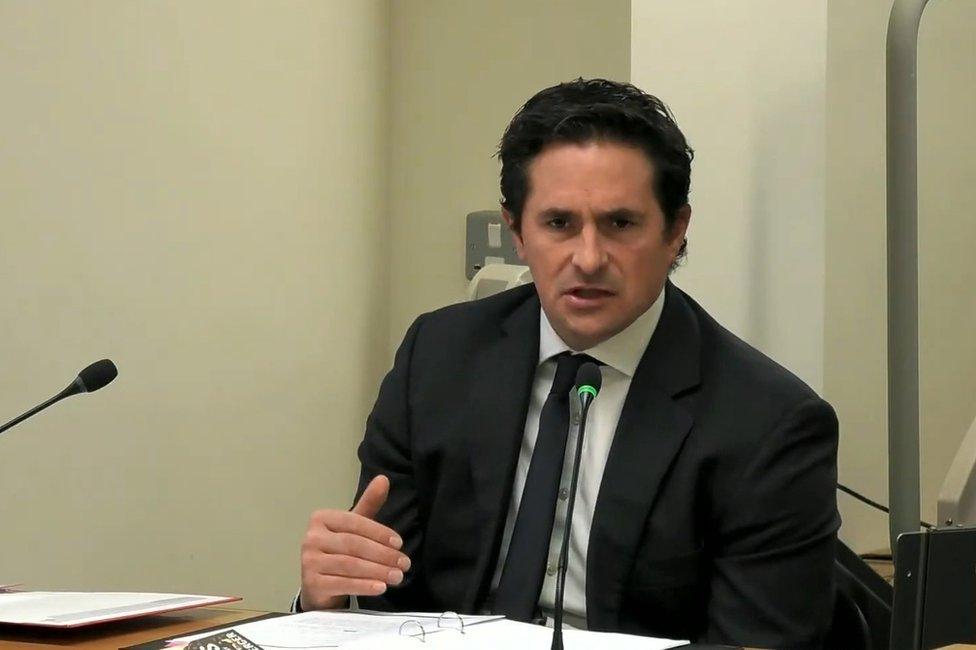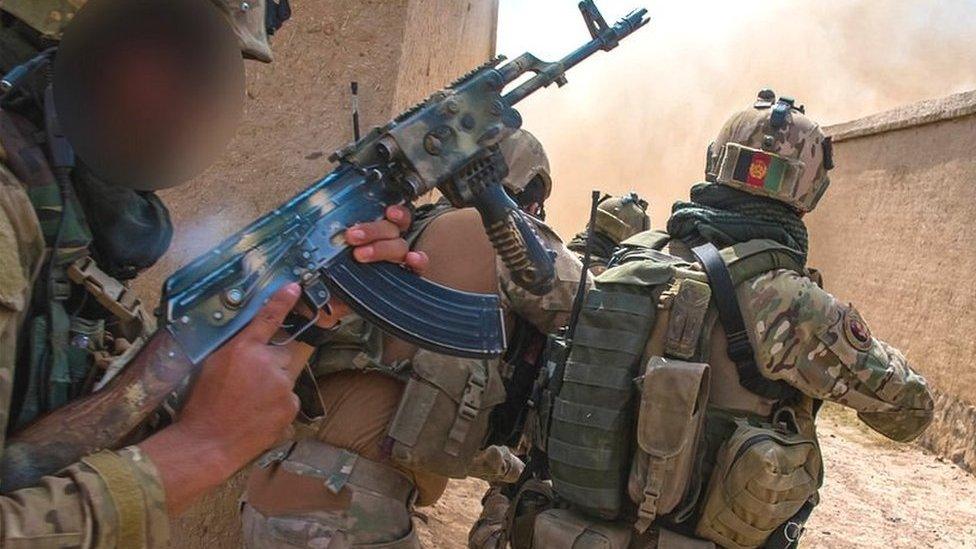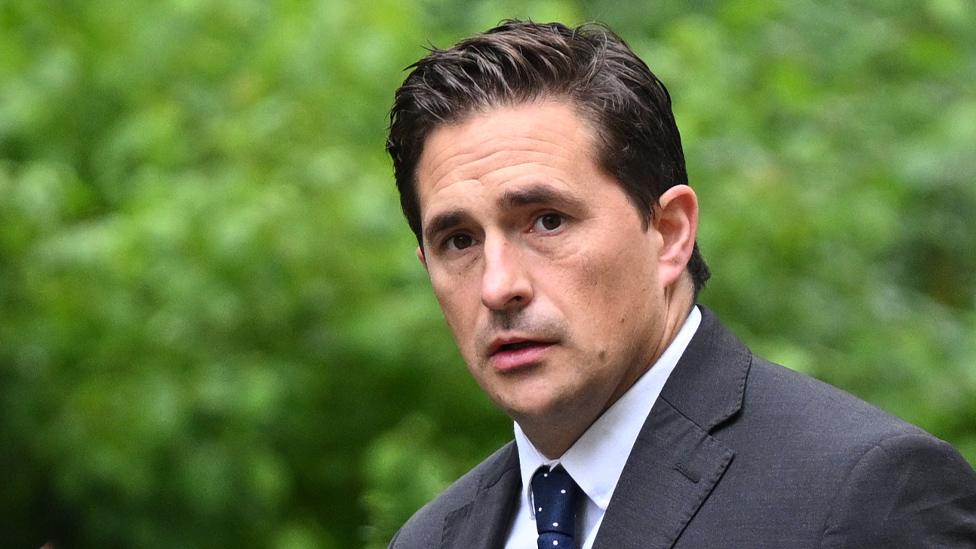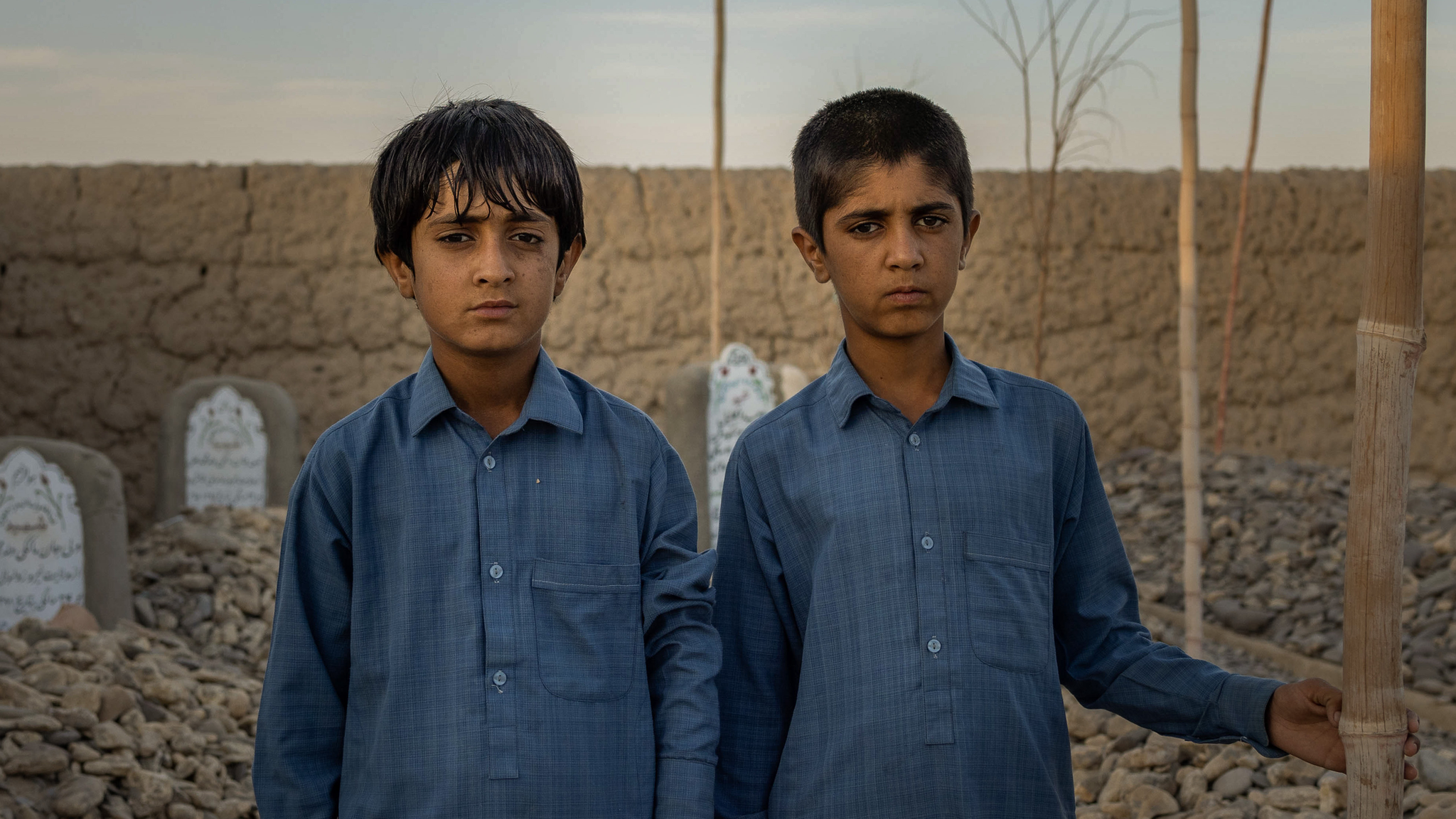Minister says Afghan commandos described 'horrific' SAS war crimes
- Published

Johnny Mercer, who served alongside UK Special Forces in Afghanistan, giving evidence to the inquiry.
Veterans minister Johnny Mercer has told a public inquiry he heard "horrific" accounts from former members of Afghan special forces of the SAS killing unarmed detainees and children.
Asked by the chair of the inquiry to clarify that he was describing "allegations of straight murder" by the SAS, Mr Mercer replied, "Yes."
BBC Panorama reported this week that UK Special Forces had blocked Afghan special forces, known as the "Triples", from relocating to the UK after the Taliban swept back to power in 2021.
Former members of the SAS told Panorama that there was a clear conflict of interest in UK Special Forces being able to veto Triples applications, because the Afghan commandos could be potential witnesses to the public inquiry.
The Independent Inquiry relating to Afghanistan, launched in the wake of reporting by the BBC and other media outlets, is investigating whether British special forces killed civilians and unarmed people on night raids in Afghanistan between 2010 and 2013.
The Triples - from Afghan units CF 333 and ATF 444 - accompanied the SAS on many of the raids being scrutinised.
Referring to conversations with several former members of the Triples, Mr Mercer told the inquiry that the allegations presented to him were "horrific" and had "confirmed my worst fears".
He said they included accounts of the SAS executing detainees, including children, who had already been restrained and posed no threat. He added there was "no reason why a person under control should lose their life".
The BBC revealed in 2022 that one SAS squadron had killed at least 54 people, including detainees and children, in suspicious circumstances in one six-month tour of Afghanistan.
Mr Mercer told the inquiry on Wednesday that the way the SAS was operating and the injuries suffered by children in particular had provoked Triples units into refusing to accompany the elite British force on missions.
The minister said there should have been cause for concern if "Afghan special forces are refusing to go out the door with you".
Mr Mercer also said that if the allegations presented to him by former members of Afghan special forces, as well as by serving members of UK Special Forces, were true, the responsible members of the SAS were "criminals".
"If true I have absolutely nothing in common with these individuals and I totally reject their behaviour," he said.
During his first day of testimony to the inquiry on Tuesday, Mr Mercer repeatedly refused to provide the names of members of UK Special Forces who had given him first and second-hand accounts of alleged SAS war crimes.
Returning to the matter on Wednesday, the inquiry chairman Lord Justice Haddon-Cave called the minister's refusal "completely unacceptable".
"You need to decide which side you are really on, Mr Mercer," Lord Justice Haddon-Cave said. "Is it assisting the inquiry fully, and the public interest and the national interest in getting to the truth of these allegations quickly, for everyone's sake?
"Or is it being part of what is in effect an 'omerta', a wall of silence."
The chairman went on to tell Mr Mercer that his refusal gave rise to "potentially serious legal consequences which I may need to put in train". The inquiry can legally compel Mr Mercer to hand over information if he were to continue to refuse to provide the names.
Mr Mercer also told the inquiry the Ministry of Defence had "failed in their basic duty" to get to the bottom of what took place and even misled him about the extent of the evidence that war crimes may have taken place.
When attempting to seek assurances about the conduct of the SAS, Mr Mercer said he was told that no full motion video (FMV) was available for operations being scrutinised by the Royal Military Police - a claim he told the inquiry he regarded as completely implausible.
He said that when he challenged the head of UK Special Forces, General Sir Roland Walker, about the apparent lack of footage, Gen Walker simply leant back on his chair and shrugged.
Mr Mercer told the inquiry he was angry at Gen Walker, as well as the then-head of the head of the British Army, General Sir Mark Carlton-Smith, for apparently misleading him.
"I don't disguise the fact that I am angry with these people," he said. "The fact that I'm sat here today is because those people, with their rank and privileges, have not done their job."

Do you have information about this story that you want to share?
Get in touch using SecureDrop, a highly anonymous and secure way of whistleblowing to the BBC which uses the TOR network.
Or by using the Signal messaging app, an end-to-end encrypted message service designed to protect your data.
SecureDrop: http://kt2bqe753wj6dgarak2ryj4d6a5tccrivbvod5ab3uxhug5fi624vsqd.onion/
Signal: 0044 7714 956 936
Please note that the SecureDrop link will only work in a Tor browser. For information on keeping secure and anonymous, here's some advice on how to use SecureDrop.

Related topics
- Published19 February 2024

- Published20 February 2024

- Published14 December 2022
